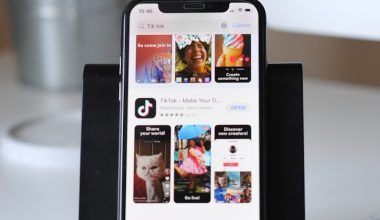For songwriters and musicians, selling songs can be a fulfilling way to turn passion into profit. Whether you’re writing for artists, licensing music for films, or selling your own singles online, the opportunities in today’s music industry are endless.
This comprehensive guide will teach you how to navigate the world of selling songs effectively. From understanding licensing agreements to finding platforms to sell your music, you’ll learn all the steps to earn money and grow your career.
Why Focus on Selling Songs?
The music industry has evolved, and selling songs is now easier than ever. Here’s why it matters:
- Generate Income: Earn royalties, licensing fees, and direct sales revenue.
- Reach Wider Audiences: Share your music with fans worldwide.
- Build Your Brand: Establish yourself as a professional songwriter or artist.
- Create Passive Income: Licensing deals can pay dividends for years.
Steps to Start Selling Songs
1. Write Quality Songs
Before diving into selling songs, focus on creating music that resonates.
- Catchy Melodies: Ensure your song is memorable.
- Strong Lyrics: Write meaningful and relatable lyrics.
- Professional Production: Invest in good recording and mixing to make your tracks sound polished.
2. Register Your Songs
Registering your songs ensures you retain rights and earn royalties.
- Performing Rights Organizations (PROs): Register with organizations like ASCAP, BMI, or SESAC.
- Copyright Your Work: Submit your songs to your country’s copyright office for legal protection.
3. Choose Your Selling Strategy
Decide how you’ll sell your songs. Common methods include:
- Direct Sales: Sell your music directly to fans.
- Licensing: Allow your songs to be used in films, TV, or ads.
- Publishing Deals: Partner with a music publisher to promote your songs.
Selling Songs Online
Digital Platforms for Selling Songs
The internet has revolutionized how music is sold. Platforms that support selling songs include:
- Spotify and Apple Music
- Distribute your songs for streaming.
- Use services like TuneCore, DistroKid, or CD Baby to upload your tracks.
- Bandcamp
- Sell your songs directly to fans.
- Set your own prices and keep most of the revenue.
- BeatStars
- A marketplace for songwriters and producers.
- Ideal for selling beats and completed tracks.
- SoundCloud
- Use its monetization features to earn from your streams.
Create a Website
Having your own website is crucial for selling songs directly. Features to include:
- A music store for purchases.
- Streaming options for previews.
- Contact information for licensing inquiries.
Licensing Your Songs
Licensing is one of the most lucrative methods of selling songs.
Types of Licensing
- Sync Licensing: For films, TV shows, and commercials.
- Mechanical Licensing: For physical and digital reproductions.
- Public Performance Licensing: For radio, live performances, and streaming.
How to License Your Songs
- Partner with a licensing agency or music library.
- Submit your tracks to platforms like AudioJungle or Pond5.
- Create a portfolio of your best work to attract clients.
Selling Songs to Other Artists
Pitching Your Songs
Many songwriters focus on selling songs to established or emerging artists. Steps include:
- Build Relationships: Network with managers, producers, and A&R representatives.
- Create a Demo: Record a polished demo to showcase your song.
- Use Songwriting Contests: Many contests can lead to deals or exposure.
Collaborate with Artists
Working with other musicians can lead to joint projects, increasing the chances of your songs being sold or performed.
How to Promote Your Songs
Social platforms are excellent for showcasing your music:
- Share snippets of your songs.
- Engage with your audience through Q&A sessions.
- Use targeted ads to reach potential buyers.
2. Build an Email List
Keep your fans updated with newsletters about new releases or exclusive offers.
3. Collaborate with Influencers
Partner with social media influencers to promote your music to a broader audience.
Managing Royalties
When selling songs, royalties are a critical revenue stream.
Types of Royalties
- Mechanical Royalties: Earned from physical or digital sales.
- Performance Royalties: Collected when your song is played publicly.
- Sync Royalties: Paid for licensing your music in visual media.
Use a Royalty Collection Service
Platforms like Songtrust or PROs help collect royalties on your behalf, ensuring you get paid.
Challenges in Selling Songs
While selling songs can be rewarding, it comes with challenges:
- Market Saturation: Standing out requires exceptional quality and promotion.
- Complex Licensing Agreements: Work with professionals to navigate contracts.
- Consistent Output: Keep producing new music to stay relevant.
The Future of Selling Songs
The music industry continues to evolve, offering new opportunities for selling songs:
- NFTs and Blockchain: Sell music as NFTs to gain more control and transparency.
- AI Tools: Use AI to enhance your songwriting and production.
- Virtual Reality Concerts: Promote your music in immersive environments.
Conclusion
Selling songs is both an art and a business. By creating quality music, leveraging online platforms, and exploring licensing opportunities, you can turn your passion into a sustainable career. Whether you’re an independent songwriter or an artist, the tools and strategies shared in this guide will help you achieve your goals.
Related Articles:
For further reading, explore these related articles:
- How to Write a Song: A Step-by-Step Guide for Beginners
- The Complete Guide to Music Distribution: How to Share Your Music with the World
For additional resources on music marketing and distribution, visit Deliver My Tune.






